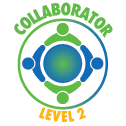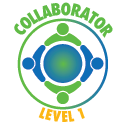Confirmation bias often can creep into root cause analysis activity. It’s important to understand how this bias, as well as convergent and divergent thinking, can affect problem-solving activities and influence decision making. There’s a four-step process that provides a framework to defeat confirmation bias in problem solving. The author illustrates this process with an example of a manufacturer looking for reasons why a baby food container was cracking and causing problems.
Read more in “Come to Light.”
@Lindsay Pietenpol
Excellent thoughts in this article. I would propose two additional thoughts to augment the approach. First, consider including people on the team who have general subject matter knowledge but are sufficiently removed from the problem that they can ask the innocent questions. De Bono, in his book Serious Creativity (HarperCollins, 1993) lists innocence as one of the sources of creativity in lateral thinking. Second, consider the Is-Is Not Matrix (well explained in Nancy Tague's The Quality Toolbox, 2nd Edition (ASQ Quality Press, 2005)). I have used this tool to gather, organize, and analyze facts and data in RCA CAPA situations. It is an excellent tool to enhance team convergent thinking following the Gemba encounters.
Confirmation bias often can creep into root cause analysis activity. It’s important to understand how this bias, as well as convergent and divergent thinking, can affect problem-solving activities and influence decision making. There’s a four-step process that provides a framework to defeat confirmation bias in problem cuphead. The author illustrates this process with an example of a manufacturer looking for reasons why a baby food container was cracking and causing problems.
Read more in “Come to Light.”
After reading this share of yours, I see that you are a very intelligent and independent thinker. I think you will be an excellent analyst.
Confirmation bias often can creep into root cause analysis activity. It’s important to understand how this bias, as well as convergent and divergent thinking, can affect problem-solving activities and influence decision making. There’s a four-step process that provides a framework to defeat confirmation bias in problem solving. The author illustrates this process with an example of a manufacturer looking for reasons why a baby food container was cracking and causing problems.
Read more in “Come to Light.”
Convergent thinking and divergent thinking are two distinct cognitive processes that can also impact problem-solving activities. Convergent thinking involves finding a single solution to a problem, while divergent thinking involves generating multiple solutions to a problem.






